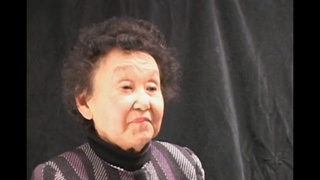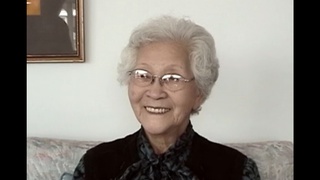Interviews
Why her parents came to Canada
I*: Rose...
Hai (Yes).
I: You know, do you know why your mother and father came to Canada?
Well, I guess they, they wanted to make money and go home, which, instead of making money, they got further and further into a hole, so they couldn't go back to Japan.
I: And what did they do in Vancouver?
Vancouver? Boarding house on Alexander, they call it Hiroshima, yeah. But if that had succeeded, we wouldn't have been rich, but at least we would have been able to go home to Japan to say that, well, we'll, here we are. But how can you go back to Japan in debt, right? Everybody's like that. So we stayed. [Interruption] [Inaudible], they'll think that.
*"I" indicates an interviewer (Peter Wakayama).
Date: December 2004
Location: Canada
Interviewer: Peter Wakayama
Contributed by: Sedai, the Japanese Canadian Legacy Project, Japanese Canadian Cultural Center









